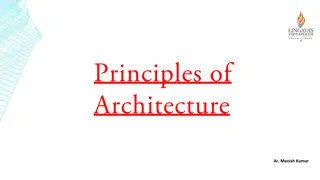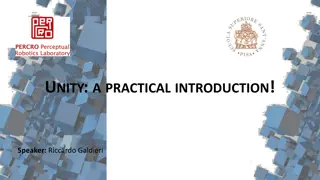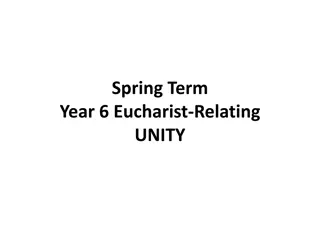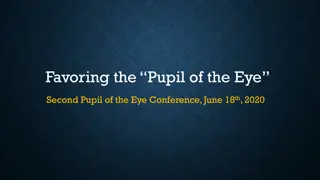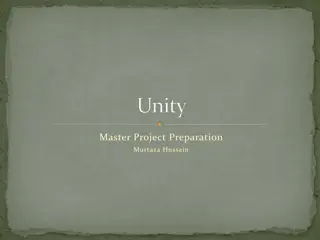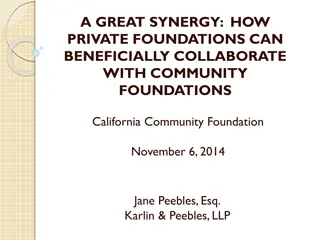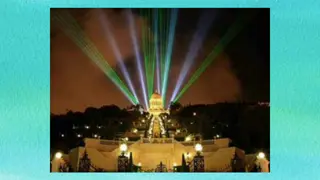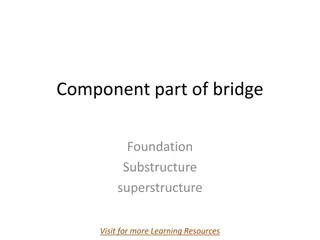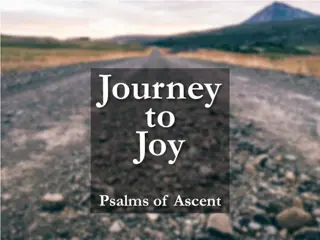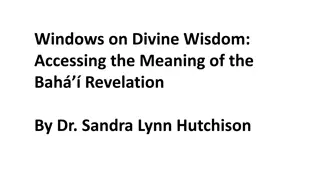Foundations of Baha'i Governance and Unity
Profound teachings of Baha'u'llah have ignited hearts, awakened souls, and invited individuals to seek oneness. The Baha'i Faith embodies a distinctive administrative model without clergy, emphasizing communal elections, non-partisanship, and consultative decision-making. This innovative approach fosters unity, selflessness, and service-oriented leadership, countering societal disillusionment towards governance and electoral processes.
Download Presentation

Please find below an Image/Link to download the presentation.
The content on the website is provided AS IS for your information and personal use only. It may not be sold, licensed, or shared on other websites without obtaining consent from the author.If you encounter any issues during the download, it is possible that the publisher has removed the file from their server.
You are allowed to download the files provided on this website for personal or commercial use, subject to the condition that they are used lawfully. All files are the property of their respective owners.
The content on the website is provided AS IS for your information and personal use only. It may not be sold, licensed, or shared on other websites without obtaining consent from the author.
E N D
Presentation Transcript
1 Many a chilled heart, O my God, hath been set ablaze with the fire of Thy Cause, and many a slumberer hath been wakened by the sweetness of Thy voice. How many are the strangers who have sought shelter beneath the shadow of the tree of Thy oneness, and how numerous the thirsty ones who have panted after the fountain of Thy living waters in Thy days! Blessed is he that hath set himself towards Thee, and hasted to attain the Dayspring of the lights of Thy face. Blessed is he who with all his affections hath turned to the Dawning-Place of Thy Revelation and the fountainhead of Thine inspiration. Blessed is he that hath expended in Thy path what Thou didst bestow upon him through Thy bounty and favor. Blessed is he who, in his sore longing after Thee, hath cast away all else except Thyself. Blessed is he who hath enjoyed intimate communion with Thee, and rid himself of all attachment to anyone save Thee. I beseech Thee, O my Lord, by Him Who is Thy Name, Who, through the power of Thy sovereignty and might, hath risen above the horizon of His prison, to ordain for everyone what becometh Thee and beseemeth Thine exaltation. Thy might, in truth is equal to all things. - Bah 'u'll h
2 There is no class of ecclesiastics or clergy in the Baha i Faith. Instead, Baha is use an administrative framework provided by their prophet founder Baha u llah In His writings, he detailed a system of elected lay councils at the local, national and international levels to oversee the Faith. Baha is 21 and older enjoy the right to vote in Baha i elections and serve as members of Baha i administrative institutions. All Baha i elections are held by secret ballot and plurality vote. Baha i elections have no candidacies, nominations, partisanship, campaigning, or electioneering.
3 As political parties have a tendency to divide rather than unify, governance in the Baha i Faith is non-partisan owing to the strong emphasis placed by the Baha i teachings on the principle of unity. The Bah writings specifically encourage the election of individuals with recognized ability, maturity, experience, and humility, with due regard for factors such as age distribution, diversity, and gender. The whole emphasis of the Bah electoral system is to bring forth leaders who possess qualities of selflessness, intellectual capacity, moral integrity, and wisdom. A focus on service is key.
4 Baha i governing bodies make decisions using a special non- adversarial form of collective decision-making known as consultation. It builds unity of purpose by welcoming and encouraging the free expression of views, and by striving for consensus based on established principles. At a time when trust in government is eroding everywhere in the world, and when the electoral process in many nations has become discredited because of endemic corruption, this new model of governance serves as an antidote to apathy, alienation and despair.
5 One of the most intriguing aspects of this process is the absence of a prepared ballot or of any system of nominations. Instead, every adult Bah in the community is eligible for election to the Local Spiritual Assembly (the nine-member council in each locality that administers community affairs). On Election Day, after a period of prayer and meditation and with due regard to the relevant guidance in the Baha i scripture each adult votes for the nine individuals that he or she feels are best qualified to serve as Assembly members.
6 I do not feel it to be in keeping with the spirit of the Cause to impose any limitation upon the freedom of the believers to choose those of any race, nationality or temperament, who best combine the essential qualifications for membership of administrative institutions. They should disregard personalities and concentrate their attention on the qualities and requirements of office, without prejudice, passion or partiality. The Assembly should be representative of the choicest and most varied and capable elements in every Bah 'i community. - Shogi Effendi, Letter from the Guardian to an individual believer, August 11, 1933: The Spiritual Character of Bah 'i Elections.
7 The strength and progress of the Bah 'i community depend upon the election of pure, faithful and active souls...Canvassing is deprecated...Bah 'i elections of the Community are...sanctified from all traces of canvassing and plotting that characterize the activities of the perfidious. - Letter form Shogi Effendi to the friends in Persia, April 9, 1932.
8 One's vote shold be kept confidential. It is not permissable to make any reference whatsoever to individual names. The friends must avoid the evil methods and detestable practices of the politicians. They must turn completely to God, and with a purity of motive, a freedom of spirit and a sanctity of heart, participate in the elections; otherwise the outcome will be chaos and confusion, serious difficulties will ensue, mischief will abound and the confirmation of God will be cut off. - Shogi Effendi, Letter from the Guardian to the friends in Persia, January 16, 1932: The Spiritual Character of Bah 'i Elections.
9 The Guardian's instruction is clear and definite on the following point, namely that when an election results in a tied vote between persons, one whom represents a minority, that person should unhesitatingly be accorded priority without having a re-vote to break the tie. There is no doubt on this point. - The Universal House of Justice, From a letter dated June 30, 1966, from The Universal House of Justice to the National Spiritual Assembly of Alaska.
10 Sixth President of the US. 1825-1829










